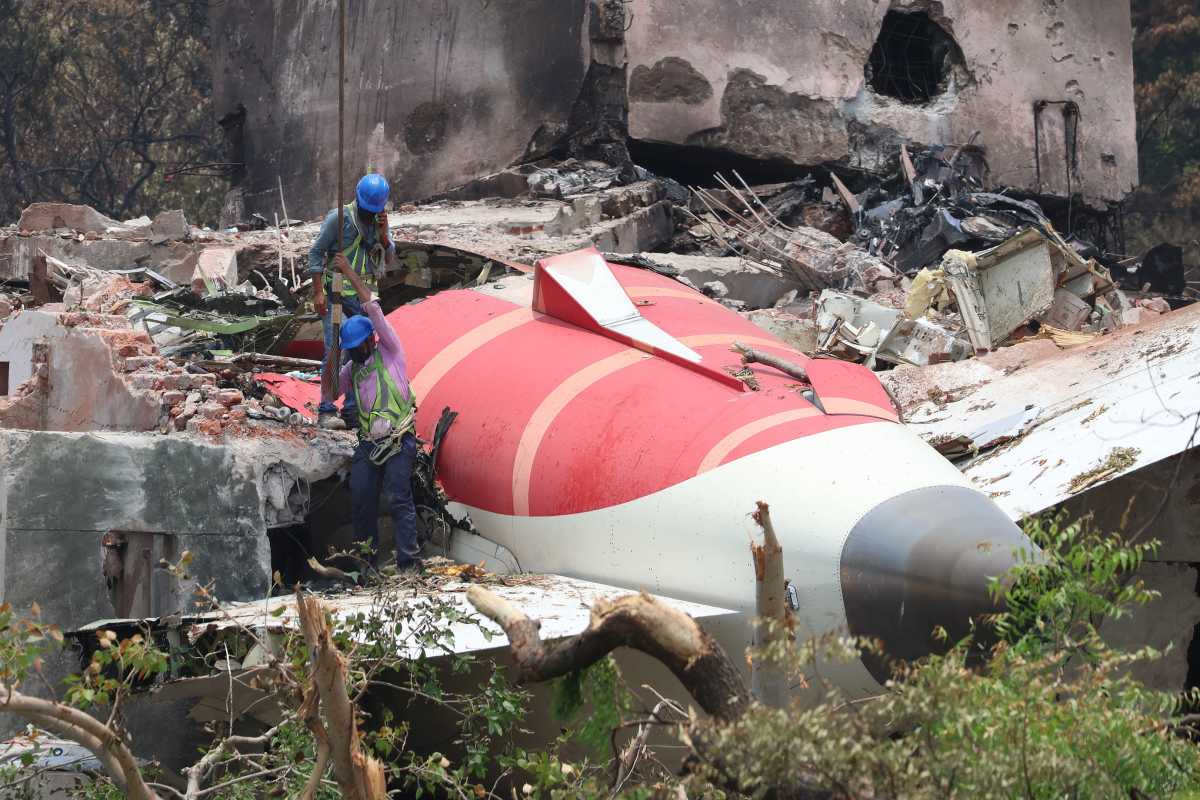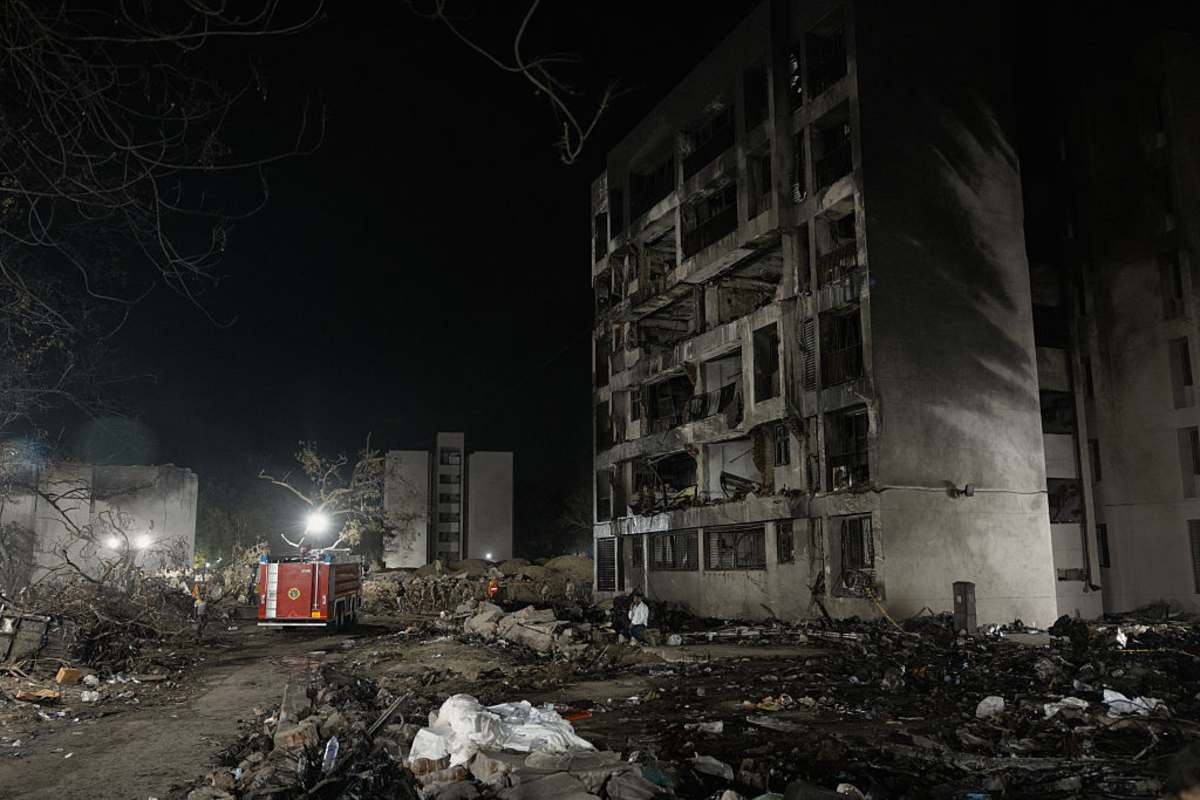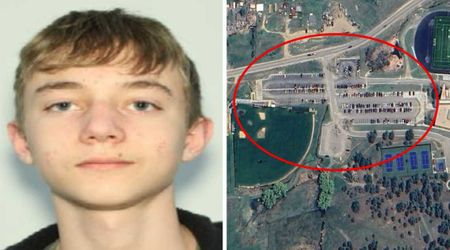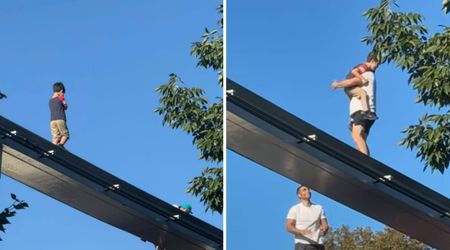Aviation expert claims Air India Flight 171 pilot had 'depression, mental health issues' amid crash probe

Air India crashed after taking off. The plane was seen struggling to gain altitude before crashing into a fire ball.. Over 200 people were on board..#AirIndiaCrash pic.twitter.com/xacH20AlSe
— Sudhir Byaruhanga (@Sudhirntv) June 12, 2025
AHMEDABAD, INDIA: Investigators probing the Air India Flight 171 crash have turned their focus to Captain Sumeet Sabharwal, pilot monitoring the flight at the time of tragedy. Reports allege that he struggled with mental health issues in the past, having taken leaves for both personal and medical reasons.
The Boeing 787 Dreamliner took off on June 12 but crashed within seconds into a residential area in Ahmedabad, killing 241 people on board and 19 on the ground.
Investigators found that someone manually turned off two fuel switches shortly after takeoff, triggering a total engine failure. Because these switches come with locking mechanisms that prevent accidental use, officials are now examining whether the action was deliberate or a critical pilot error.
An aviation safety expert raises concerns about the pilot's mental health after the Air India crash
Captain Mohan Ranganathan, one of India’s top aviation safety experts, has claimed that several Air India pilots had raised concerns about 56-year-old Captain Sumeet Sabharwal’s mental health.
According to Ranganathan's statement shared with The Telegraph, “I have heard from several Air India pilots who told me he had some depression and mental health issues. He had taken time off from flying in the last three to four years. He had taken medical leave for that."
Sumit Sabharwal, the pilot of Air India flight that crashed in Gujarat used to live with his 88-year-old father in Powai area of suburban Mumbai.
— Madhuri Adnal (@madhuriadnal) June 13, 2025
He had been working as a pilot since 1994.
Sumit's 88-year-old father is now alone after the recent tragedy. His mother passed away… pic.twitter.com/Fma5G4QA0q
He also noted that Captain Sabharwal had taken bereavement leave following his mother's death. But the captain added, “He must have been medically cleared by the company [Air India] doctors. They must have given the clearance certificate.”

Neil Pais, a former colleague of Sabharwal from Powai, Mumbai, described him as a “thorough gentleman.” Pais added, “He was actually considering early retirement in the next couple of years. His father is very old, 90, and he was going to look after him full time. That was the plan.”
He continued, “We’re all human beings. Yes, there have been crew who’ve displayed tendencies towards mental health issues, and they’ve been grounded straight away. It’s not allowed to go unchecked.”
He emphasized, “Often it’s more about life outside the job, which of course plays a part in how you perform. But if there’s a concern, it’s taken up by operations, by the right departments. They don’t let anyone fly if there’s any doubt.”
An official from Tata Group, the parent company of Air India, offered a differing account, stating that Captain Sabharwal had not taken any recent medical leave.
The official statement reported, “He did take bereavement leave in 2022 following his mother’s death, and his medical records were submitted as part of the investigation, and the preliminary report did not find anything noteworthy.”
Both pilots had passed the Class I medical examination, which assesses a pilot’s physical and psychological fitness, within the past two years.

Investigators focus on cockpit actions as new details emerge in Air India Flight 171 crash
On Sunday, July 13, Indian aviation authorities released a preliminary report that raised serious questions about why the pilots manually turned off the fuel switches on Air India Flight 171 just seconds after takeoff, prompting debate over whether the action was a catastrophic error or a deliberate act.
The cockpit voice recorder captured a tense exchange: one pilot asked, “Why did he cut off?” and the other replied, “I didn’t.” Pilots typically operate the fuel switches at specific stages of a flight, but in this instance, someone cut the fuel supply almost immediately after takeoff, and the crew failed to raise the landing gear.
At the time, the co-pilot was flying the aircraft, while the captain was monitoring. Seconds later, the crew returned the fuel switches to the "run" position, triggering the engine relight process.
One engine successfully reignited but failed to reach full thrust, while the other was still attempting to power up when the aircraft crashed. Investigators later found both switches in the "run" position at the crash site.
The report also confirmed that both pilots had rested adequately before the flight and had passed breathalyser tests, confirming they were fit for duty.
Investigators ruled out several other possible causes: the aircraft was carrying no hazardous cargo, remained within allowable weight limits, and was fueled with aviation-grade fuel that met all safety standards. Authorities also reported no significant bird activity along the flight path.










